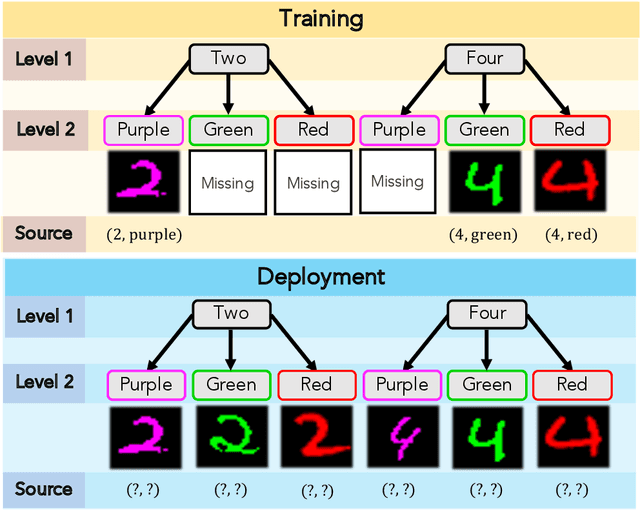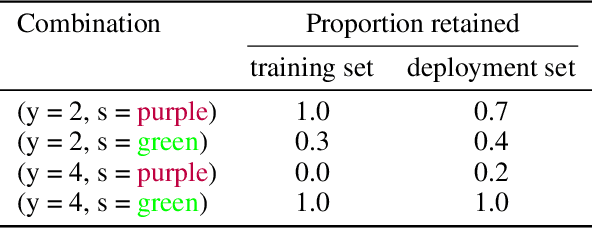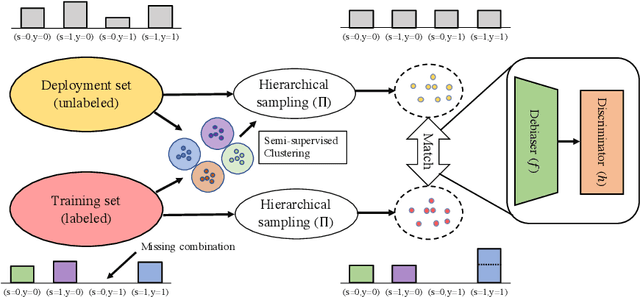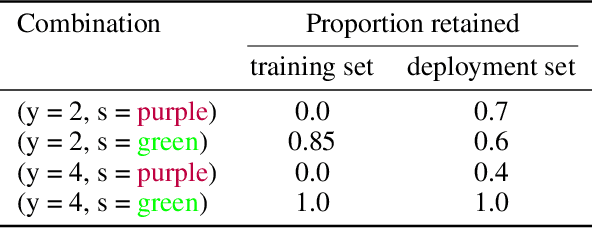Addressing Missing Sources with Adversarial Support-Matching
Paper and Code
Mar 24, 2022



When trained on diverse labeled data, machine learning models have proven themselves to be a powerful tool in all facets of society. However, due to budget limitations, deliberate or non-deliberate censorship, and other problems during data collection and curation, the labeled training set might exhibit a systematic shortage of data for certain groups. We investigate a scenario in which the absence of certain data is linked to the second level of a two-level hierarchy in the data. Inspired by the idea of protected groups from algorithmic fairness, we refer to the partitions carved by this second level as "subgroups"; we refer to combinations of subgroups and classes, or leaves of the hierarchy, as "sources". To characterize the problem, we introduce the concept of classes with incomplete subgroup support. The representational bias in the training set can give rise to spurious correlations between the classes and the subgroups which render standard classification models ungeneralizable to unseen sources. To overcome this bias, we make use of an additional, diverse but unlabeled dataset, called the "deployment set", to learn a representation that is invariant to subgroup. This is done by adversarially matching the support of the training and deployment sets in representation space. In order to learn the desired invariance, it is paramount that the sets of samples observed by the discriminator are balanced by class; this is easily achieved for the training set, but requires using semi-supervised clustering for the deployment set. We demonstrate the effectiveness of our method with experiments on several datasets and variants of the problem.
 Add to Chrome
Add to Chrome Add to Firefox
Add to Firefox Add to Edge
Add to Edge